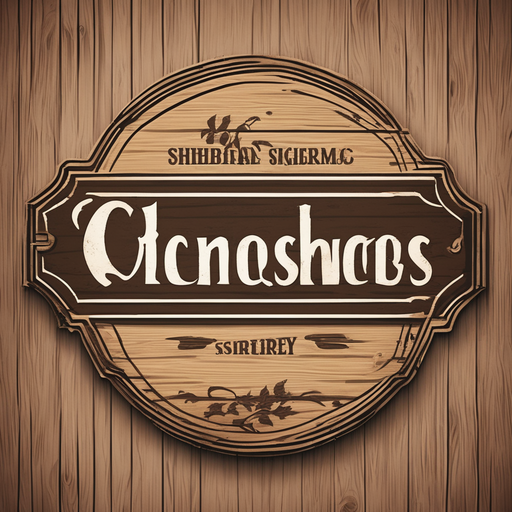
Plastic Revolution: From Fantastic to Eco-Conscious

Living Without Plastics: Mission Impossible
This is my personal reflection on BBC 6 Minute English: Can we live without plastic?
沒有塑料:不可能的任務
這是我對 BBC 6 Minute English: Can we live without plastic? 的個人反思。
Introduction
It is common to use single-use plastics in our everyday lives. The packages of food and various items are made of plastic. For instance, when I buy groceries, whether I go to a supermarket or a traditional market, I come home with several plastic products. It is not only convenient but also inevitable to use plastic products.
簡介
在我們的日常生活中,使用一次性塑料是很普遍的。食品和各種物品的包裝都是用塑料製成的。例如,當我購物時,無論是去超市還是傳統市場,我總是帶著幾樣塑料制品回家。使用塑料制品不僅方便,而且是不可避免的。
Plastic was Fantastic
According to BBC, there was a time that ‘Plastic is fantastic!’ was used a lot and popular. During the 1950s, mass-produced plastic items started to become part of our everyday lives. I have never heard of this phrase before, but I can understand why the slogan was trendy. The reason is simple: plastic products essentially substitute for the need of other resources like wood and metal. It’s portable and flexible nature also provides great convenience for both customers and producers. No wonder plastics are widely used. What’s more, petrochemical industries provide substantial profit and contribute a lot to a city’s economy. In fact, I grew up with hearing the legends of the establishment of Formasa Plastics Corporation.
塑料曾經很棒
據BBC報導,’塑料是夢幻的!’曾經是一個廣泛使用且流行的口號。在1950年代,大規模生產的塑料制品開始成為我們日常生活的一部分。我以前從未聽過這個詞語,但我能理解為什麼這個口號曾經風靡一時。原因很簡單:塑料制品基本上替代了對木材和金屬等其他資源的需求。它的便攜和靈活的特性還為消費者和生產者提供了極大的便利。難怪塑料被廣泛使用。而且,石化工業為城市的經濟提供了可觀的利潤並做出了很大的貢獻。事實上,我在成長過程中經常聽到台塑公司成立的傳奇故事。

Living Without Plastics: Is it Possible?
In my humble opinion, it is nearly impossible to get rid of plastics completely. However, we can always do something to help protect our environment. For instance, bringing our own bags while getting groceries can significantly reduce the use of plastic bags. Employing biodegradable plastic packages is another decent way to reduce the harm of plastics. In addition, avoiding drinking bubble tea can also contribute to the protection of the planet: The Taiwanese signature drink always needs a straw to drink! As long as we make small changes through our act, we can help the Earth recover from our harm.
沒有塑料:可行嗎?
在我看來,完全不使用塑料幾乎是不可能的。然而,我們總是可以做一些事情來幫助保護我們的環境。例如,購物時攜帶自己的袋子可以顯著減少使用塑料袋。使用可生物降解的塑料包裝是減少塑料危害的另一種不錯的方式。此外,避免飲用珍珠奶茶也有助於保護地球:這種台灣的招牌飲料總是需要吸管!只要我們通過自己的行動做出一些小的改變,就可以幫助地球從我們的傷害中恢復過來。
Editor’s Comment:
In this well-composed reflection, our author navigates the plastic-infused landscapes of convenience, drawing a vivid picture of the past allure of plastics and the contemporary quest for sustainable choices.
編輯評論:
在這篇寫得很出色的反思中,我們的作者航行在塑料充斥的便利景觀中,生動描繪了塑料過去的吸引力和當代追求可持續選擇的畫面。

Vocabulary
Sentences revised by ChatGPT will be shown like this
- Single-use plastic
plastic products which are designerd to be used just once before being thrown away
It is hard to completely avoid single-use plastic in modern life.
在現代生活中,完全避免使用一次性塑料是很難的。
- microbeads
tiny plastic particles found in personal care products like toothpastes and body scrubs
Through our food comsumption, microbeads accumulate in our bodies.
通過我們的食物消耗,微塑料微粒在我們的身體中積累。
- synthetic
non-natural; made by combining artificial man-made chemicals
Utra-processed food might contain synthetic ingredients, making it even more unhealthy.
It is more environmentally friendly to use plastic products that can biodegrade naturally.
超加工食品可能含有合成成分,使其更加不健康。
- biodegrade
decay naturally, in a way that is not harmful
It is more enviroment-friendly to use plastic products that can biodegrade naturally.
使用可以自然生物降解的塑料產品更有利於環保。
- fea and far between
very rare; not happening very often
Few and far between, we can see stars clearly at night; most of the time we can’t see them because of light pollution.
Few and far between: Few and far between, we can see stars clearly at night; most of the time, we can’t see them because of light pollution.
在夜晚,我們很難清晰地看到星星;大多數時候,由於光污染,我們無法看到它們。
- unsightly
ugly; unattractive; unpleasant to look at
The unsightly streetscape and overwhelming air pollution are essential elements in Taiwan.
不雅的街景和壓倒性的空氣污染是台灣不可或缺的元素。
Scoring
- Vocabulary use: 8.5/10
- Grammar use: 9/10
- Sentence structure and coherence: 9/10
- Readability: 9/10
- Overall scoring: 8.9/10
- GPA standard: A-
- Pros:
- Clear and effective communication of ideas.
- Well-structured with a logical flow of information.
- Good use of grammar, contributing to overall readability.
- Cons:
- Minor adjustments in vocabulary use for even more variety.
- Advice:
- Vocabulary use: Continue expanding your vocabulary to add more depth and variety.
- Maintain the excellent grammar usage for clear and effective communication.
- GPA standard: The reflection provides thoughtful insights into the challenges and impact of living without plastics. The writing is well-organized and demonstrates a strong command of language. The suggestions for environmentally friendly practices are practical and add value to the overall message.
ChatGPT’s Revision
Plastic Predicament: Navigating the Sea of Convenience
Introduction:
In the rhythm of our daily lives, single-use plastics orchestrate a symphony of convenience. From supermarket hauls to traditional market treasures, plastics seamlessly weave into our existence, offering ease that seems impossible to forgo.
Plastic was Fantastic: A Blast from the Past
Recalling an era where ‘Plastic is fantastic!’ echoed through the corridors of popularity in the 1950s, I ponder the allure of this bygone slogan. Plastic’s rise marked a revolution, substituting wood and metal with its portable and flexible nature. The legends of Formasa Plastics Corporation’s establishment, woven into my upbringing, underscored plastics’ economic prowess.
Living Without Plastics: A Sisyphean Task?
While bidding adieu to plastics entirely appears a Herculean feat, embracing change for environmental well-being stands as a noble pursuit. Carrying reusable bags on grocery escapades and opting for biodegradable plastic packages emerge as simple yet impactful gestures. Even forgoing the beloved Taiwanese bubble tea, with its straw-dependent sipping, becomes a conscientious step. In the collective dance of small changes, lies our ability to heal the wounds we’ve inflicted upon the Earth.
塑料困境:在便利的海洋中航行
簡介:
在我們日常生活的節奏中,一次性塑料製品組成了一曲方便的交響樂。從超市的戰利品到傳統市場的珍寶,塑料無縫地融入我們的生活,提供了一種似乎不可能放棄的便利。
塑料曾經是奇妙的:來自過去的回憶
回想起在1950年代,“塑料是奇妙的!”這句口號在流行的走廊中迴盪時,我對這個往昔的口號的魅力感到思考。 塑料的崛起標誌著一場革命,用其便攜靈活的特性代替了木材和金屬。 Formasa Plastics Corporation建立的傳說編織成我的成長經歷,強調了塑料在經濟上的實力。
生活無塑料:一項不可能的任務?
雖然完全告別塑料似乎是一項浩大的任務,但為了環境健康而接受改變是一種高尚的追求。 在購物逃避時攜帶可重複使用的袋子,選擇生物降解的塑料包裝,是簡單而有影響力的舉動。 甚至放棄心愛的台灣珍珠奶茶,因為它需要用吸管飲用,也是一個有良心的舉措。 在這場小變革的集體舞蹈中,我們有能力治癒我們對地球造成的傷害。
- Title: Plastic Revolution: From Fantastic to Eco-Conscious
- Author: ThomasL@KH
- Created at : 2023-12-17 08:15:11
- Updated at : 2023-12-17 10:45:56
- Link: https://thomaslatkh.github.io/2023/12/17/20231216LivingWithoutPlastics/
- License: This work is licensed under CC BY-NC-SA 4.0.